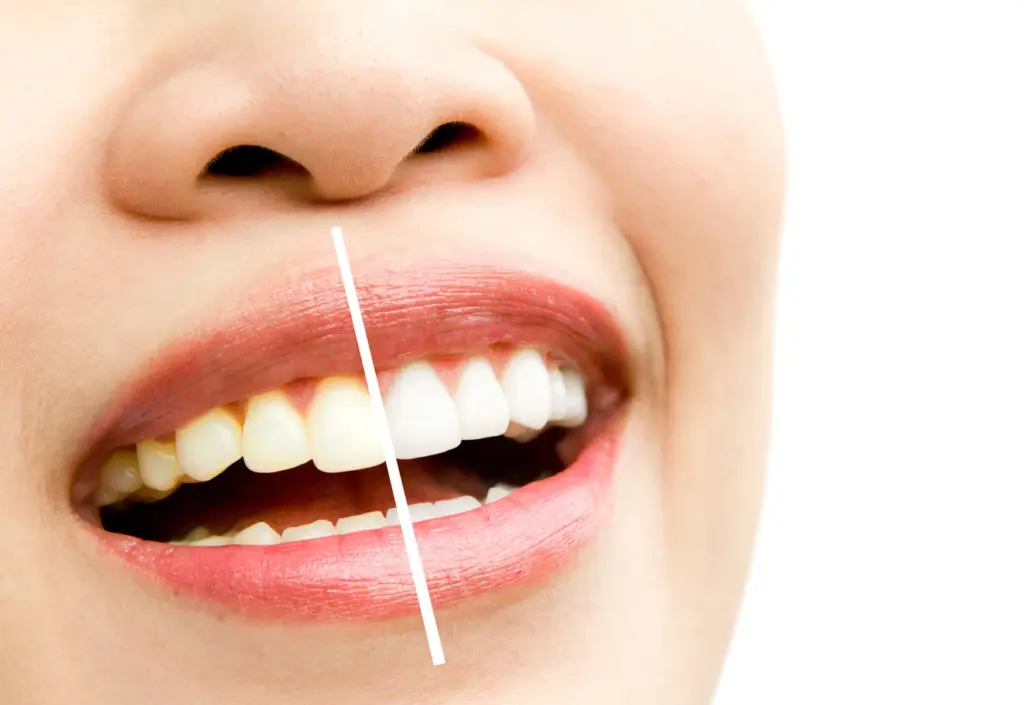Does Coconut Oil Whiten Teeth?

Coconut oil is the most famous people and lords of the beauty industry, and today it is not just the best in the best but also the most effective natural teeth whitening method. From TikTok videos to holistic health blogs, users have discovered a new, even brighter, strong white smile with the help of coconut oil swishing, being secured, and without any potentially harmful substances. It is scientifically proven, however, that it works. So, come and let us go out in the world to explore why swishing has become such a popular and fascinating phenomenon.
Most people wonder if coconut oil can make their teeth white, how to properly use it, as well as what to expect from this method. First and foremost, it is very important to remember that coconut oil is an all-natural product obtained from the flesh of a coconut. It contains lauric acid, which has antibacterial and antimicrobial properties that can help in combating oral health problems, thus contributing to the whitening of the teeth.
Coconut Oil for Teeth – Does It Work?
Coconut oil is filled with lauric acid, which is a natural fungicide; this means that it reduces harmful bacteria levels in human mouths significantly.
This leads to improvements in oral hygiene, minimizes plaque build-up and provides fresher breath – all contributing towards achieving cleaner-looking white smiles by people using these products over time or sometimes with less restrictiveness on daily usage.
Nevertheless, when taking into consideration the actual effects or action in whiteness achieved on teeth by such a substance, scientifically, this is limited evidence on whether there has been enough effort put together.
While there are some users’ claims about having a typical exhibit of white effects, upon continued regular application, it should be borne in mind that coconut oil contains no levels of bleaching agents like hydrogen peroxide, which is found in varying professional whitening products that come along with minimal expense per use.
In other words, if someone hopes for visible signs of drastic transformation, which were methods using chemical-based whiteners, coconut oil will not provide those results.
However, when properly used to focus on surface stains, it still makes the teeth look cleaner and shinier but does not change the nature of the enamel, so it’s becoming technically less white than it was before applying the oil during oil pulling.
How to Use Coconut Oil for Teeth?

One of the most well-acquainted methods for using coconut oil for whitening teeth and fighting bacteria in your mouth is called “oil pulling,” which is an ancient Ayurvedic technique.
This method is quite popular among users; it is very easy to perform and requires only coconut oil, so let’s take a look at how it can be done step by step:
- Put 1 tablespoon of the virgin coconut oil in your mouth.
- Swirl it for 10–20 minutes (yes, that long).
- Spit your coconut oil into a trash can or container (not down the sink — the drain can become blocked as a result of your action).
- Use water to rinse out your mouth, then brush your gums, teeth, tongue, and roof of your mouth as you would.
For best results, use coconut oil pulling at least 2-3 times a week; however, more frequent applications could be applied if desired. The common technique is said to work by outwardly drawing out harmful contamination and bacterial infection from carious teeth, gum areas, and mouth surfaces while spreading a layer of a beneficial healing recharge to the tooth surfaces, making them healthier and shinier.
How to Whiten Teeth with Coconut Oil?
When your primary goal is to obtain a pearly white, attractive smile, the important thing you should know is that you need to be consistent with using coconut oil for oral care every time. Here are some clever ideas on how to always have coconut oil as part of your oral hygiene habits.
- Go for oil pulling with firm and qualified coconut oil for at least 2 to 3 consecutive weeks.
- Incorporate a pinch of baking soda with coconut oil (not more than once a week) for heightened, efficient stain-erasing power.
- Take a small quantity of coconut oil and apply gently on your toothbrush, then brush for 2-3 minutes.\n
It is important to keep in mind beforehand that white teeth with the use of coconut oil are not a runny fix or a magical solution. Some people will even notice an improvement in the color of teeth and its general condition due to the elimination of plaque and the removal of stains with the help of coconut oil; however, it would not be fair to hope for the changes achieved as a result of the treatment in a dental office or some other treatment process. Do not entertain the idea that white teeth with coconut oil will be generated overnight, for two days, or for a week. You have to be open to the fact that tooth whitening using coconut oil alone will show only gradual changes in tooth appearance and you should give it some time.
Brushing Teeth with Coconut Oil

Coconut oil could not in any way affect the safety of brushing the teeth with it, but it is advisable to use it in addition to the regular use of fluoride toothpaste and never as a substitute. The reason why fluoride toothpaste is used is the lack of its presence, and it is the only mineral that can enhance the strength of dental enamel while impairing the chances of erosion.
On a good note, here is how to brush teeth with coconut oil:
- Take a small quantity of coconut oil (½ a teaspoon) onto your brush, i.e. floss toothbrush.
- Brushing is preferably done as usual for 2 minutes.
- Do not forget to remove any extra oil and rinse thoroughly, and still, if you want, use toothpaste.
This technique can enhance the freshness of the mouth at the moment and even a good smell of it for a hr or two but then again attending the view you need to use coconut oil as an addition and support to maintaining your mouth in a good state but not as a primary treatment that can beat the best of the treatments in the same fields.
How Fast Does Coconut Oil Whiten Teeth?
The first issue to confront is, Does coconut oil whiten teeth? It should be clear that, if so, it is a slow process. In general, people who observe visible results clarify that it takes about 2-4 weeks of daily oil pulling before seeing any significant change in their teeth color. Bearing in mind that it is a natural and cheap method, many people start coconut oil pulling with the hope of achieving a white and Hollywood smile.
However, it should be noted that the timeline for results is highly dependent on the condition of your teeth at the time of use among other factors and these include; the types of foods you feed on (including Coffee, tea, and smoking among others), the duration of use of coconut oil, and the level of consistency. Therefore, individuals who probably have very dark teeth because of a lot of staining materials will have a lot of patience with the process, and thus it would take the same process longer to give a positive result. Other people have even gone ahead to comment that although they did use coconut oil continuously, they did not see any change in their teeth’s color. Thus, if you are truly in search of a pitch white and gleaming white-colored smile, then you should not rely solely on coconut oil.
Final Thoughts
Your daily approach to oral care can be boosted by coconut oil. It’s organic, has antifungal properties, and keeps your teeth free from plaque and stains for a long time. However, for teeth whitening purposes, the outcome is debatable.
If you dream of immediately and distinctly whiter teeth, professional treatments such as dental veneers, laser whitening, or in-office bleaching at clinics like Lema Dental Clinic in Istanbul, Turkey still both procedures are still very powerful and would give you faster and the most impressive outcomes.
Top FAQs: Can Coconut Oil Whiten Your Teeth?
Coconut oil may help reduce surface stains and improve the overall appearance of your teeth, but it does not contain bleaching agents to whiten enamel deeply. Results are usually subtle and require consistent use.
For obvious changes, do oil pulling for 10-20 minutes each day. The majority of individuals begin to notice a slight difference after 2-4 weeks.
Yes, coconut oil is an acceptable tooth cleaner, but this practice should not replace your fluoride toothpaste. Coconut oil does not have the elements that a toothpaste has and that help against cavity formation and enamel wear.
Indeed, coconut oil is not just a secure option but also delivers its own set of benefits due to its antimicrobial function. This versatile substance can assist in the reduction of harmful bacteria, ensure fresh breath, and act as a gum protector.
Use organic, unrefined virgin coconut oil for the best results. It’s free from additives and retains more of its natural antibacterial compounds.




